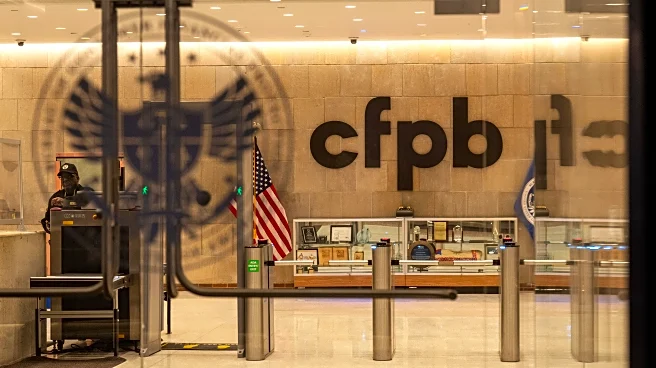Rapid Read • 7 min read
President Trump has signed an executive order allowing 401(k) retirement plans to include Bitcoin investments. This directive, aimed at the U.S. Labor Department, seeks to facilitate the inclusion of alternative assets such as cryptocurrencies in retirement portfolios. The move could channel billions of dollars into digital assets through regulated investment products like Bitcoin exchange-traded funds (ETFs). Currently, 401(k) accounts hold approximately $12.5 trillion, representing a significant untapped market for cryptocurrency exposure. The policy shift allows plan sponsors to offer funds linked to Bitcoin, potentially impacting the market significantly. A modest 3% allocation of 401(k) assets to crypto could result in about $240 billion in inflows, with $144 billion directed towards Bitcoin alone. This comes at a time when Bitcoin reserves on exchanges have dropped to a seven-year low, indicating a potential supply crunch.
AD
The inclusion of Bitcoin in 401(k) plans could have a profound impact on the cryptocurrency market and retirement savings landscape. By opening up a substantial new market for Bitcoin investments, the executive order could drive significant demand for the digital asset, potentially increasing its value. This move also reflects a broader acceptance of cryptocurrencies in mainstream financial systems, which could encourage further institutional investment. However, it also raises concerns about the volatility and risk associated with cryptocurrencies, which could affect retirement savers. Companies holding Bitcoin in their treasuries may benefit from increased demand, while traditional financial institutions might face pressure to adapt to the growing popularity of digital assets.
As the executive order takes effect, financial institutions and retirement plan sponsors will likely begin developing and offering Bitcoin investment options to their clients. This could lead to increased competition among asset managers to provide innovative cryptocurrency products. Additionally, regulatory bodies may need to establish clearer guidelines to ensure investor protection and market stability. The potential influx of retirement funds into Bitcoin could also prompt further scrutiny and debate over the role of cryptocurrencies in retirement planning.
AD
More Stories You Might Enjoy












